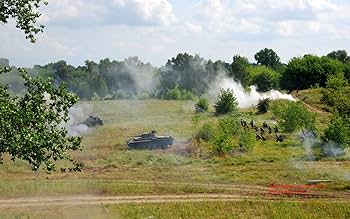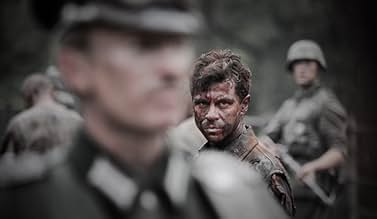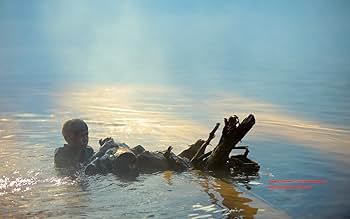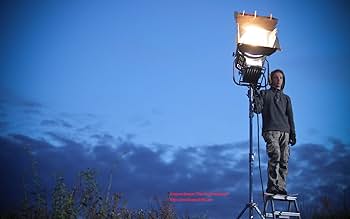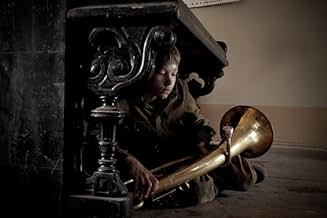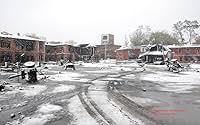PUNTUACIÓN EN IMDb
7,4/10
11 mil
TU PUNTUACIÓN
Añade un argumento en tu idiomaA war drama set during the Nazi invasion of the Soviet Union in June 1941, in which Soviet troops held on to a border stronghold for nine days.A war drama set during the Nazi invasion of the Soviet Union in June 1941, in which Soviet troops held on to a border stronghold for nine days.A war drama set during the Nazi invasion of the Soviet Union in June 1941, in which Soviet troops held on to a border stronghold for nine days.
- Premios
- 7 premios y 14 nominaciones en total
Aleksey Kopashov
- Sashka Akimov
- (as Alyosha Kopashov)
Anna Tsukanova-Kott
- Sonya
- (as Anna Tsukanova)
Argumento
¿Sabías que...?
- PifiasAround time code 1h20, we see Stukas bombing the fortress. The firsts Stukas pass arrive correctly. The other Stukas have their head down and arrive on the back. Technicians have probably inverted the images.
- ConexionesFeatures Los alegres muchachos (1934)
Reseña destacada
Produced in honour of the Red Army soldiers defending the USSR Western borders, Fortress of War recounts historical events combined with fictitious chronicles surrounding the June 1941 siege of the Brest Fortress in Sothern Belorussia against the invading Wehrmacht Army Group Centre forces in the opening stages of Operation Barbarossa.
This historical event is creatively accompanied by reminiscing narration from an orphaned 15-year old boy named Sasha Akimov. His narration ties together three main defensive stages led by real life Soviet war heroes centered on the resistance zones holding out against the protracted German siege. One location is headed by regiment commander Pyotr Gavrilov (Aleksandr Koshunov) another by the political commissar Yefim Fomin (Pavel Derevyanko) and lastly the head of the 9th frontier outpost, Andrey Mitrofanovich Kizhevatov (Andrey Merzlikin). All three have a different story to tell.
The film begins in an archetypal peaceful, though nervous per-war Belorussia in the summer of 1941. The heavy military presence contained in Brest, notably its historic 19th century fortress, explains the current political situation in the country following the Nazi conquest of Western Europe and the Politburo's rightful suspicions of Hitler next intended target. The focal characters are simultaneously introduced intermediately around Sasha's observational narration. The ensuing bombardment by Wehrmacht artillery and brutal assault comes with-out warning and is unleashed with fuming panic. The film thus continues along a direction of separate combat charges and defensive manoeuvres. These numerous skirmishes and scuffles between the two opposing armies are effective, edgy and well-staged. All the combat scenes are extremely effective and mastered by the production team using special effects and pyrotechnics to their full advantage. Because the film was produced by the Belarusfilm Company and in truth many of the cast and crew either lived or parents lived through the nightmare of the Wehrmacht invasion and resultant onslaught of the population, the accuracy to detail is visually authentic and at no point attempts to introvert away from the brutality faced by their ancestral soldiers or civilians during these troubled times. Yet, it does not go unnoticeable that this film contains blotches of patriotism and benevolence. The narration shifts between characters and their dilemmas in the three separate defensive locations at the beginning may appear to be unclear and confusing. Nevertheless, through skillful editing and directing as the film moves along at a steady peace the separate stories begin to coalesce into one and by no means are a distraction.
In summary, Fortress of War is a first-rate factual dramatised war movie which subjects its audience to the brave climatic struggle for survival and once again is another example of the evolving historical films from the Counties brutalised by ideology fuelled hatred and genocide that was the Second World War.
This historical event is creatively accompanied by reminiscing narration from an orphaned 15-year old boy named Sasha Akimov. His narration ties together three main defensive stages led by real life Soviet war heroes centered on the resistance zones holding out against the protracted German siege. One location is headed by regiment commander Pyotr Gavrilov (Aleksandr Koshunov) another by the political commissar Yefim Fomin (Pavel Derevyanko) and lastly the head of the 9th frontier outpost, Andrey Mitrofanovich Kizhevatov (Andrey Merzlikin). All three have a different story to tell.
The film begins in an archetypal peaceful, though nervous per-war Belorussia in the summer of 1941. The heavy military presence contained in Brest, notably its historic 19th century fortress, explains the current political situation in the country following the Nazi conquest of Western Europe and the Politburo's rightful suspicions of Hitler next intended target. The focal characters are simultaneously introduced intermediately around Sasha's observational narration. The ensuing bombardment by Wehrmacht artillery and brutal assault comes with-out warning and is unleashed with fuming panic. The film thus continues along a direction of separate combat charges and defensive manoeuvres. These numerous skirmishes and scuffles between the two opposing armies are effective, edgy and well-staged. All the combat scenes are extremely effective and mastered by the production team using special effects and pyrotechnics to their full advantage. Because the film was produced by the Belarusfilm Company and in truth many of the cast and crew either lived or parents lived through the nightmare of the Wehrmacht invasion and resultant onslaught of the population, the accuracy to detail is visually authentic and at no point attempts to introvert away from the brutality faced by their ancestral soldiers or civilians during these troubled times. Yet, it does not go unnoticeable that this film contains blotches of patriotism and benevolence. The narration shifts between characters and their dilemmas in the three separate defensive locations at the beginning may appear to be unclear and confusing. Nevertheless, through skillful editing and directing as the film moves along at a steady peace the separate stories begin to coalesce into one and by no means are a distraction.
In summary, Fortress of War is a first-rate factual dramatised war movie which subjects its audience to the brave climatic struggle for survival and once again is another example of the evolving historical films from the Counties brutalised by ideology fuelled hatred and genocide that was the Second World War.
- richard6
- 8 jun 2013
- Enlace permanente
Selecciones populares
Inicia sesión para calificar y añadir a tu lista para recibir recomendaciones personalizadas
- How long is Fortress of War?Con tecnología de Alexa
Detalles
- Fecha de lanzamiento
- Países de origen
- Sitio oficial
- Idiomas
- Títulos en diferentes países
- Fortress of War
- Localizaciones del rodaje
- Empresas productoras
- Ver más compañías en los créditos en IMDbPro
Taquilla
- Recaudación en todo el mundo
- 4.569.604 US$
- Duración2 horas 18 minutos
- Color
- Mezcla de sonido
- Relación de aspecto
- 2.35 : 1
Contribuir a esta página
Sugerir un cambio o añadir el contenido que falta

Principal laguna de datos
What is the Spanish language plot outline for La fortaleza Brest (2010)?
Responde
